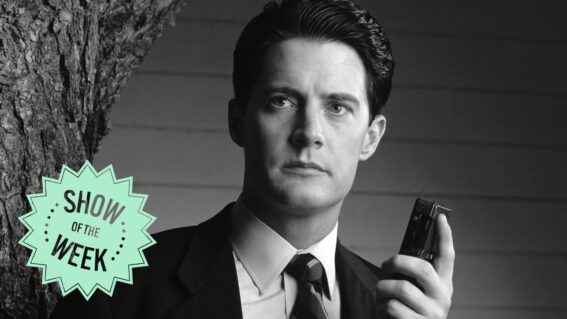An open letter to an open letter
Hello all (an open letter), A few days ago, an open letter from the producers of the Kiwi true story pirate radio flick 3 Mile Limit was posted on the film’s Facebook page calling out three New Zealand critics, each of whom did not rate it tremendously high. It brewed quite a heated argument in […]

Hello all (an open letter),
A few days ago, an open letter from the producers of the Kiwi true story pirate radio flick 3 Mile Limit was posted on the film’s Facebook page calling out three New Zealand critics, each of whom did not rate it tremendously high. It brewed quite a heated argument in the comments section – the usual back-and-forth about film criticism – that often detracted from the points the producers wanted to make. I resisted the urge to enter the argument like this, opting instead to link to a similar post I wrote last year like the bloody shameless scumbag I am. The open letter has since been taken down from the Facebook page (probably due to the forum inching closer and closer to the YouTube comments cesspool of trolling anger), but you can still see it word-for-word if you look hard enough.
The producers’ ultimate claim was that “certain facts about 3 Mile Limit [had] been either omitted or altered” in these critics’ reviews – those reviewers being NZ Herald’s Peter Calder, Dominion Post’s Graeme Tuckett and Radio NZ’s Dan Slaven Slevin. Now these men are far, far more experienced critics than myself, so I highly doubt that they’d purposely “alter” facts in order to suit their opinion. However, it is possible to be mistaken about aspects of the actual event 3 Mile Limit is based on, and if the producers feel that a key criticism is based on this false perception, it’s completely reasonable for them to call those critics out. Whether Calder, Tuckett or Slevin were actually incorrect about any factual claims they may or may not have made is simply down to comparing their reviews to documentation.
The producers then call out Calder about how he suggested to the director Craig Newland to change the name. This leads me to this very recyclable quote:
“What does that have to do with reviewing a movie?”
They continue to talk about Calder, saying he “fails to mention any of the accolades 3 Mile Limit has received.” Further down, they follow Slevin’s quote “The film as a whole really has ambitions beyond its ability to reach them,” with “Slevin also fails to mention the films* accolades,” which is a bit of a non sequitur. But the key word here is ‘failure’, which implies that a review needs to succeed in mentioning awards, film festivals and other reviewers’ praise before giving your own criticism. But given a film critic’s review is about their own opinion, I have to ask:
“What does that have to do with reviewing a movie?”
*this should have an apostrophe given the ‘accolades’ belong to the ‘film’, so really, the only ones who have actually failed to properly mention the film’s accolades are the producers, but I digress
They then point to the following reviews from America that “suggest otherwise”:
http://www.filmthreat.com/reviews/74985/
http://www.huffingtonpost.com/connie-lawn/3-mile-limit_b_4839108.html
To the producers’ credit, they have succeeded in identifying that not all critics have the exact same opinion on movies.
This is a point I cannot debate.
What’s really troubling is how these two reviews are used to make a generalised statement about New Zealand critics. As I’ve said before, Calder, Tuckett and Slevin are all far more experienced in film criticism than me (as is my editor Steve Newall, who reviewed the film on the same level), and they certainly seem even more experienced than the Huffington Post reviewer Connie Lawn. Labelled as “The Skiing White House Reporter” for the Huff as well as being an Honorary Officer of the New Zealand Order of Merit for services to New Zealand-U.S. Relations (which is more than I will ever achieve in my life), her 3 Mile Limit review is the only movie review she has in her Huffington back catalogue. And yet, the producers seem intent on championing this debut opinion over some of New Zealand’s finest film critics.
Lawn went on to say that 3 Mile Limit “is in the category of Once Were Warriors and Whale Riders.” Ignoring the fact that she incorrectly spelled the latter film, this is more dangerous to me than anything an angry commenter can say about a review, for it feels less like she’s raising 3 Mile Limit up to Kiwi classic status and more like she’s dragging down our classics to merely “good” level. I’m hoping that by “category” Lawn was referring to something other than filmmaking quality, but reading over that paragraph a number of times yields no clarity to her meaning.
“We don’t feel the support of the NZ film industry that Tuckett purports,” they lament, and yet that lack of support feels mutual – especially when there are local reviews who felt more positively towards it but were “omitted” from the open letter. Sarah McMullan over at 13th Floor called it “incredibly impressive and a testament to the talent and passion of those involved that it looks so amazing when there was so little money available,” while PJ Taylor from Times five-starred the flick (note: I struggled to find any other film reviews from Taylor).
To be fair, Tuckett did mention how he tries to support the local industry while the producers did not mention anything about supporting local film critics – and they don’t have to. In fact, you don’t have to support film critics at all. We’re not paid to pretend our opinion’s better than yours (and I’d personally pop a cap in the ass of any tall poppy critic who thinks otherwise) – we’re simply paid to put it in writing as clearly, as structurally and as honest as possible. But when the producer chooses to support amateur reviews over our local reviewers simply because they’re positive, I do have to question how seriously a critic’s opinion is taken – one that has accumulated years of experience and love for NZ cinema.
Oh, and by the way, I saw 3 Mile Limit a few days ago and I thought it was pretty good.
Some film reviewer guy,
Flicks.



















